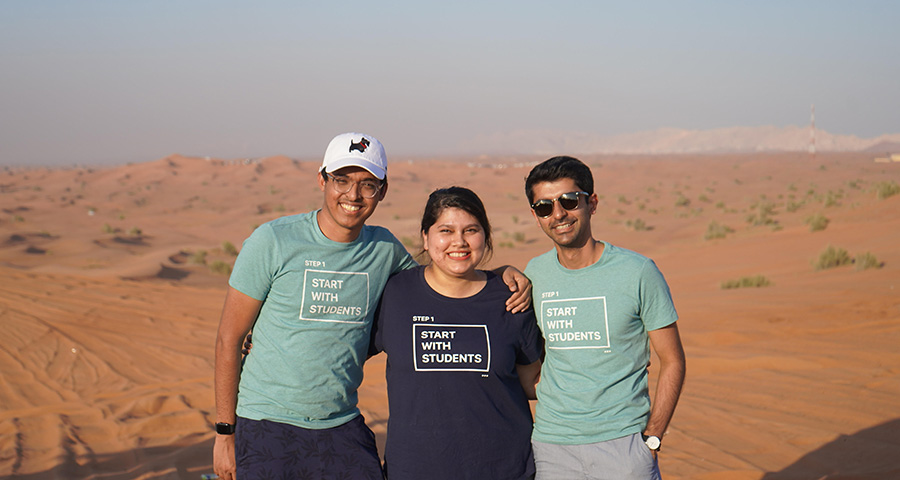
CMU-Q Startup Receives Gates Foundation Grant
Alumni-led company, Stellic, will investigate challenges for students from traditionally under-represented student populations
A business that started as a student project at Carnegie Mellon University in Qatar (CMU-Q), a Qatar Foundation partner university, has been awarded a grant from the Bill and Melinda Gates Foundation (BMGF) to identify technology challenges in the areas of student advising, degree progress and tracking.
Sabih Bin Wasi is a co-founder of the technology firm Stellic.
“With this grant, we are hoping to learn the impact that current university data systems and infrastructure are having on students," Sabih says. "We believe technology has a bigger role to play, like providing better information to advisers and people who support students. That’s what we hope to learn through this grant.”
Stellic is a student-centered technology solution provider in higher education. Co-founders Bin Wasi and Rukhsar Khan graduated from CMU-Q in 2015 with degrees in computer science. Fellow CMU-Q alumni Jiyda Moussa and Musab Popatia were also instrumental in building Stellic into an international company. Today, the Stellic advising technology is used in 40 institutions, including colleges and universities in the United States, Canada, Mexico, Pakistan and Qatar.
“At Carnegie Mellon, we encourage students to pursue work that matters. I am delighted to see how Sabih and Rukhsar are leading their team, not only to build a successful business, but to find ways that students from diverse backgrounds can succeed and thrive in higher education.”
Michael Trick, dean of CMU-Q
Michael Trick, dean of CMU-Q, congratulated the Stellic team for its commitment to change.
“At Carnegie Mellon, we encourage students to pursue work that matters," Trick says. "I am delighted to see how Sabih and Rukhsar are leading their team, not only to build a successful business, but to find ways that students from diverse backgrounds can succeed and thrive in higher education.”
The Stellic team will work closely with BMGF to find new approaches to improve postsecondary attainment rates and close opportunity gaps for Black, Latino and Indigenous students. Stellic and BMGF will partner with Wright State University and CUNY Lehman College for the project.
Khan is looking forward to leveraging the resources of BMGF to learn more about how technology influences the student experience.
“The Gates Foundation has years and years of learning and research in this area, and we want to use that," says Khan, "One of things that we are offering is to bring the voice of the student into the mix. We want to look through the student lens and learn how they would like to be supported.”
The project will look for gaps in the way a university’s data and systems work together, gaps that may create obstacles for students and advisors. This lack of integration of tools can make it harder for students to plan for their unique circumstances, and prevent advisors from flagging at-risk students and supporting them through better planning and scheduling.
Bin Wasi and Khan expect the project to take about a year to complete, with a final report and recommendations shared publicly through BMGF.
